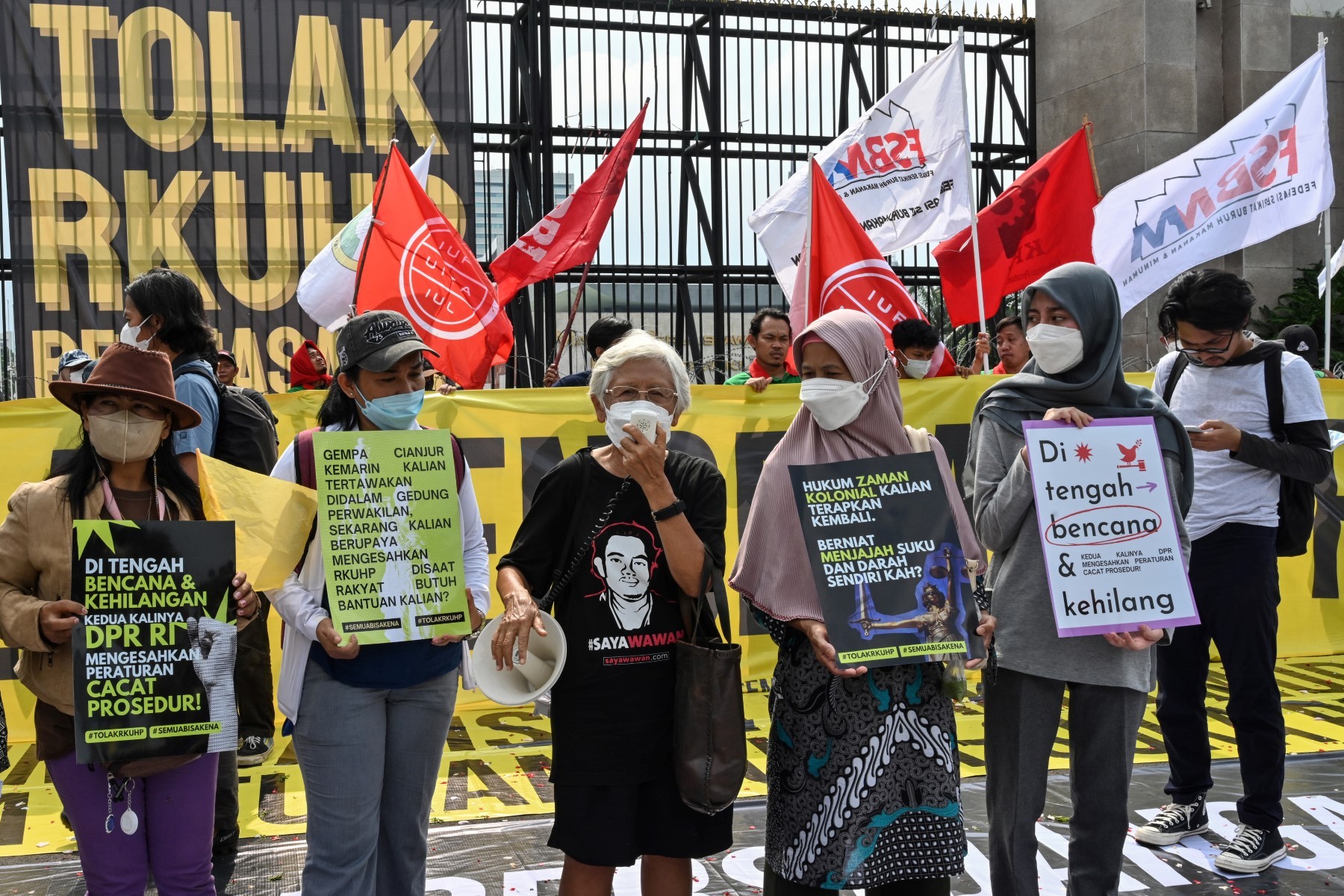A group of legislators from across Southeast Asia denounced the inclusion of articles that supposedly curtail freedoms in Indonesia’s recently passed Criminal Code.
The ASEAN Parliamentarians for Human Rights (APHR) said the new Code includes “problematic articles that could unduly restrict the right to freedom of religion or belief, freedom of speech and expression, as well as the right to privacy and sexual autonomy.”
“While we understand the need for Indonesia’s Criminal Code, a product of colonial rule, to be revised, we are concerned with the amount of articles included in the Code that could be used to suppress civil rights as during the colonial era,” said Eva Sundari, APHR board member and former Member of the Indonesian House of Representatives.
“We have made great strides towards democracy since the downfall of Suharto’s dictatorship, and the new Criminal Code threatens to reverse that progress,” said Sundari in a statement on Wednesday, December 7.
“The government and House claim to have opened room for input from civil society, but that was evidently just for the sake of appearances, as they have largely ignored objections from academics, experts and human rights defenders,” added Sundari.
She cited the chapter “Crimes against Religion, Beliefs and Religious Life and Beliefs” as “dangerously” placing “religion or belief” under the purview of the law.
Sundari also noted that the inclusion of an article that prohibits publicly showing “contempt” against religious leaders “can be used against religious minorities, who have often been the target of blasphemy laws in Indonesia in the past.”
APHR claimed that in the last decade, the use of blasphemy laws in the country has skyrocketed.
The United States Commission on International Religious Freedom (USCIRF) cited Indonesia as one of the 10 countries that most frequently enforce such laws, alongside Pakistan, Iran, Russia, India, Egypt, Yemen, Bangladesh, Saudi Arabia and Kuwait.
“Blasphemy laws only perpetuate intolerance and inter- and intra-religious conflict,” said Sundari, adding that it is “particularly dangerous in a country as diverse as Indonesia, where peaceful coexistence and dialogue between different religious and ethnic groups should be encouraged.”
Besides the articles on religion, APHR said other articles threaten the hard-won rights to freedom of speech, expression, and assembly.
One of them prohibits the spreading of communist and Marxist-Leninist teachings as well as that of “other ideologies that are contrary to Pancasila.”
Pancasila is the official, foundational philosophical theory of Indonesia.
Other articles prohibit insults against the president, the vice president, the government, and state institutions. The definitions in these articles are far too broad, opening up the door for them to be used against critics of those in power, said APHR.
An article also criminalizes holding unsanctioned public protests or demonstrations, in clear contradiction to the spirit of the Reformasi movement that brought about democratic reforms to Indonesia.
The articles criminalizing extramarital and premarital sex between two consenting adults as well as cohabitation of unmarried couples amount to another step backwards which clearly violates citizens’ right to privacy and opens up avenues for further persecution of the LGBTIQ community in the country, read the APHR statement.
“By drafting these problematic articles and allowing them to pass, the Joko Widodo administration has failed to live up to the commitment to democracy and human rights that it has so often claimed to espouse,” said Sundari.







